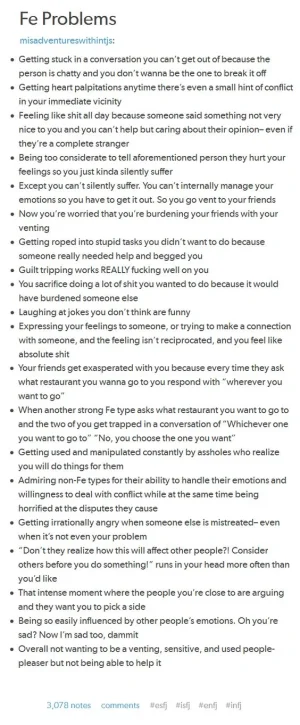In fact some of these problems are already in the version of the theory the OP relates (not the OP's fault, she is simply relating the standard theory)--I think that the idea often is circulated that Fi is the truly subjective feeling function (basically this is where the association of it with being more feminine or whatever is coming from), and I think sometimes Fe is portrayed as seeking greater consensus. I've generally been disavowed of that notion, and viewed T as the kind of "objectivity" that really seeks consensus.
In general, I think F/an ethical orientation is a more delicate game, where there is no way to inherently force consensus, and it is a more human process of judgment somehow.
The 2 sources of consensus tend to be logical reason and tradition, and I don't think either is what Fe "ought" to be in the system.
In general, I think F/an ethical orientation is a more delicate game, where there is no way to inherently force consensus, and it is a more human process of judgment somehow.
The 2 sources of consensus tend to be logical reason and tradition, and I don't think either is what Fe "ought" to be in the system.

